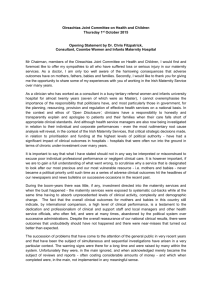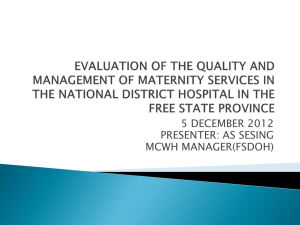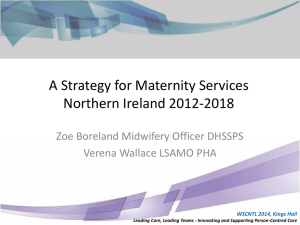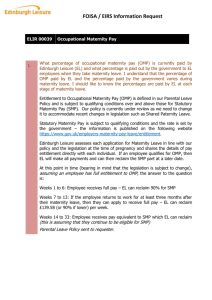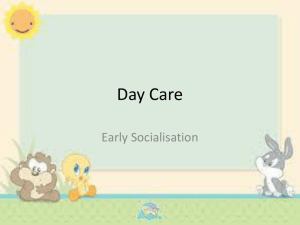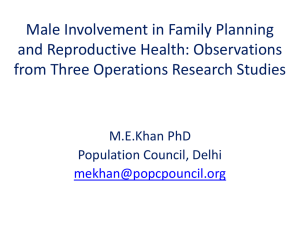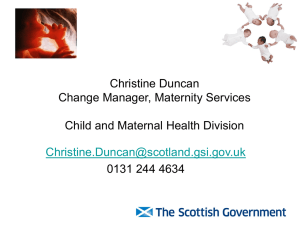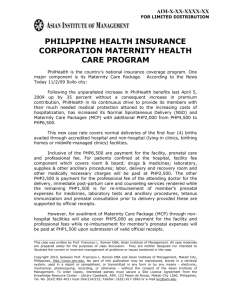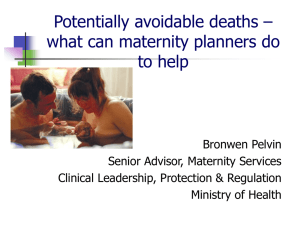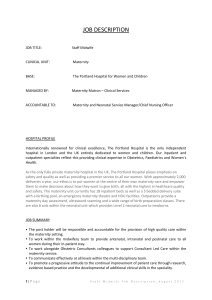Maternity QIPP Programme 2014/15
advertisement
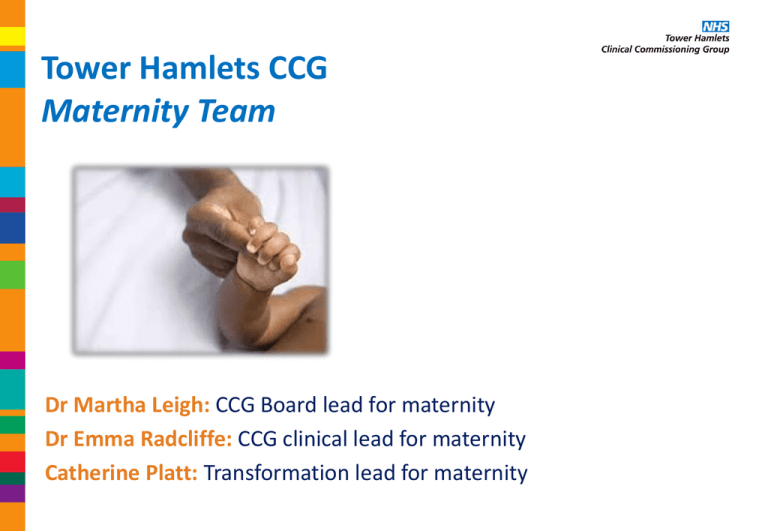
Tower Hamlets CCG Maternity Team Dr Martha Leigh: CCG Board lead for maternity Dr Emma Radcliffe: CCG clinical lead for maternity Catherine Platt: Transformation lead for maternity About this presentation By the end of this presentation, you be understand more about: • The role of your CCG Maternity Team • How you can have your say on issues on quality, safety or experience of maternity services • How to share your ideas with the CCG Team • The particular issues facing maternity quality in Tower Hamlets • The big ticket projects that we are rolling out to improve patient care What do we do? Technical • Monitor the performance & activity of providers and hold them to account • Review contracts and service specifications Clinical/pathway • Review pathways, guidelines and protocols • Research best practise maternity models Engagement • Capture feedback from GPs, CVS and patients to inform routinely Strategic • Using qualitative and quantitative data, research and reviews to design service improvement projects Represent the CCG • At a range of forms London, NEL, WELC and TH forums I have an idea/issue - Who should I contact? Issue with service • Use the service alert button on the CCG intranet – which is picked up by our quality team • Try to be as specific as possible so that cases can be audited effectively and swiftly • If we have a body of issues routinely and systematically reported, we can then feed-back themes and trends to our providers to facilitate change Ideas • catherine.platt@towerhamletsccg.nhs.uk • emma.radcliffe@nhs.net What needs to change? • Improve patient experience (lack of compassion, care and information) • Improve signposting and triage (who to call or where to go to access help) • Update antenatal and post-natal pathways (due for review) • Increase community births (low uptake) • Improve patient choice (place of birth, type of birth) • Ensure community midwifery services that are fit for purpose (continuity of care, good quality information, effective test/results process/referral process • Identification/signposting to mental health services • Make better use of the Maternity Mates Service commissioned to support those who are particularly vulnerable within the borough during the maternity pathway Maternity Transformation Programme 2014/15 Low community birth rates Increase community birth rates by 20% on 1314 rates; delivering choice for low risk mothers Provide better continuity of care between mother and midwife Reconfiguration of staffing and pathways to allow better continuity of care between mother and midwife Improving patient information to empower mothers and increase confidence Systematise and improve the quality, accuracy and range of maternity information given to mothers during the pregnancy pathway by MW’s – verbally and written MSLC Information Pilot Inform deprived/disadvantaged mothers about health, access and choice at community level, using trained community outreach workers at grass root level MSLC Engagement Continual feedback captured by local mothers about local services – to inform commissioning intentions and inform new commissioning ideas Maternity Transformation Programme 2014/15 Alongside Unit Work with Barts to launch the midwifery led along-side unit at RLH to increase capacity and ensure lower risk mums give birth in more appropriate care setting Triage Launch one dedicated triage / information desk at RLH to improve access to general support or in times of emergency Review of antenatal and postnatal pathways To bring us in-line with national best practise and inform any changes to pathways in 1516 Development of pan WELC commissioning intentions Align strategy for 1516 for maternity services across the Barts footprint Questions

